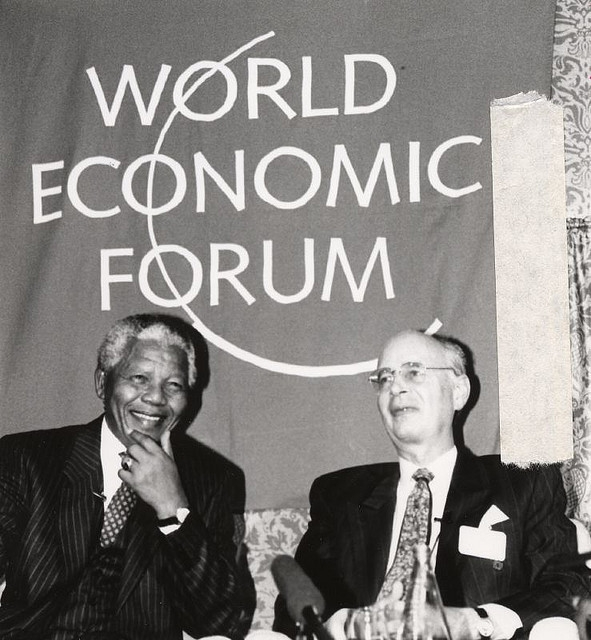Rhodesia, after it fell to Mugabe in 1980, was forgotten for many decades, but it matters greatly because it shows why the West is no longer what it once was
A short 🧵👇
A short 🧵👇

First, what was Rhodesia?
It was the little land north of South Africa and south of the Belgian Congo, where decolonization meant chaos and slaughter that effectively hasn't ended since the Belgians left
Despite being landlocked and underpopulated, it was an economic powerhouse. It was the breadbasket of Africa, exporting food to the rest of the continent, and was an industrializing economy that was also successful at growing cash crops like tobacco
It was the little land north of South Africa and south of the Belgian Congo, where decolonization meant chaos and slaughter that effectively hasn't ended since the Belgians left
Despite being landlocked and underpopulated, it was an economic powerhouse. It was the breadbasket of Africa, exporting food to the rest of the continent, and was an industrializing economy that was also successful at growing cash crops like tobacco

Notably, Rhodesia also didn't have apartheid. Rather, it had a voting system like America and much of the West, such as Britain used to have: anyone could vote so long as they owned a requisite amount of property
That restriction was meant to keep it a republic and percent the problem of democracy, which is mob voting and the wolves voting to eat the lamb
That restriction was meant to keep it a republic and percent the problem of democracy, which is mob voting and the wolves voting to eat the lamb
But despite its economic success, resistance to communism, and its hope to chart a course in Africa where the whites wouldn't face the fate of those left behind in Congo or Kenya and where blacks wouldn't face the same fate as in South Africa, America helped the USSR destroy it 

Yes, America helped the Russian and Chinese communists destroy a functional, Western nation known for being "more British than the British"
The result was genocide. With Mugabe, the winning communist, first butchering the Ndebele tribe and then forcing white farmers off their land, killing many in the expropriation process
Britain helped too
The result was genocide. With Mugabe, the winning communist, first butchering the Ndebele tribe and then forcing white farmers off their land, killing many in the expropriation process
Britain helped too

Why? Why destroy an agricultural land that mimicked Britain at its Victorian height?
Because Cultural Marxism and liberalism generally had rotted the West from the inside. It was no longer comfortable with itself and its old values, and so wanted to destroy them
Because Cultural Marxism and liberalism generally had rotted the West from the inside. It was no longer comfortable with itself and its old values, and so wanted to destroy them

As a reminder, the Old World, and much of the new (South America and the Cavalier South) were ruled by hierarchy: landed aristocrats, whether titled or gentry, handed down their wealth and prestige from generation to generation 

As a result, wealth was largely controlled by an elite few, and those few were the ones who, largely, were the ones best suited to responsible nurture it in the manner of a garden
That brought with it noblesse oblige, or the concept that the privileged should care for their social inferiors in the name of the community.
That brought with it noblesse oblige, or the concept that the privileged should care for their social inferiors in the name of the community.

But they weren't to destroy all wealth in the impossible quest to eradicate poverty; Jesus reminded us that the poor with always be with us, after all
Instead, donated was responsibly spent on bettering the circumstances of the poor, such as by building worker cottages
Instead, donated was responsibly spent on bettering the circumstances of the poor, such as by building worker cottages

Or it was spent on cultural achievements. The great statues of the Renaissance. The beautiful Palladian country houses of England. The hunting castles of Scotland. The music of Mozart and Beethoven
All came only as a result of noble wealth; hierarchy enabled achievement


All came only as a result of noble wealth; hierarchy enabled achievement


Then came Marxism and Leninism, the twin ideas of enforced egalitarianism and weaponized grievance
Death duties, punitive income taxation, social leveling, and hostility to beauty resulted from those impulses, destroying much of the Old World mindset
Death duties, punitive income taxation, social leveling, and hostility to beauty resulted from those impulses, destroying much of the Old World mindset

This era, roughly the two or three decades after WWII, saw the British nationalized coal industry destroy Wentworth Woodhouse, the greatest of country houses, out of envy. It saw America destroy the space program to focus on welfare. And, perhaps worst of all, it saw former empires turn on their colonial subjects

Hatred of hierarchy meant hatred of colonialism and imperialism after all, so Britain and France effectively helped communists carry out atrocities in Algeria, Kenya, the Congo, and more as they left and helped the "national governments" accede to power 

Rhodesia saw what happened in the Congo and told Britain to get lost, with WWII Spitfire pilot and war hero Ian Smith, the PM, leading Rhodesia as it declared independence in the hope of surviving as a functional nation 

So, the UK, and eventually America under Civil Rights Carter and his friends like Andy Young, embargoed Rhodesia. It couldn't import fuel or weapons and so was slowly strangled by the West as communists funded and armed by the USSR and Red China murdered civilians in horrible ways as their form of "war"

Eventually Rhodesia fell, unable to survive without being able to import fuel or weapons and unable to export its cash crops.
Then the aforementioned horrors of Mugabe occurred, with the West covering for Mugabe and even congratulating him as he butchered his own people
Then the aforementioned horrors of Mugabe occurred, with the West covering for Mugabe and even congratulating him as he butchered his own people

That conduct matters, and it's largely the reason the West is no longer functional and, indeed, often abetting its own destruction by importing hordes of foreigners
It's no longer self-confident, and as such, no longer willing to stand for the traits that made it great


It's no longer self-confident, and as such, no longer willing to stand for the traits that made it great


Egalitarianism did not make the West great. Social welfare did not make the West great. Hatred of white people did not make the West great. Degenerate culture and rotten entertainment did not make the West great
Social hierarchy and its wonderful fruits did
But, as shown by its rejection of Rhodesia, the West turned its back on those values. Rotted internally by Cultural Marxism and the Leninist grievance impulse, it destroyed them
Social hierarchy and its wonderful fruits did
But, as shown by its rejection of Rhodesia, the West turned its back on those values. Rotted internally by Cultural Marxism and the Leninist grievance impulse, it destroyed them

Now, instead of moon landings, concertos, and palaces, "we" have brutalist architecture, rap music, and food stamps
Was that a good tradeoff? Was it worth it?
Or should we have sided with Rhodesia as it remained the last outpost of the Old World, beset by grievance politics of the sort now destroying us?

Was that a good tradeoff? Was it worth it?
Or should we have sided with Rhodesia as it remained the last outpost of the Old World, beset by grievance politics of the sort now destroying us?


Read more about the West's war on Rhodesia here:
theamericantribune.news/p/how-the-unit…
theamericantribune.news/p/how-the-unit…
Oh, and I should have added this earlier, but also check out @k9_reaper to understand the similar events happening in South Africa, and check out this interview we did with him on the subject, in which we mention the Bush War: theamericantribune.news/p/surviving-so…
And credit to the intro pic from @thewardoll, from whose account I found it awhile ago
Make sure to read these superb books about the Bush War and Rhodesia:
https://x.com/Will_Tanner_1/status/1816985193741451534
• • •
Missing some Tweet in this thread? You can try to
force a refresh



















